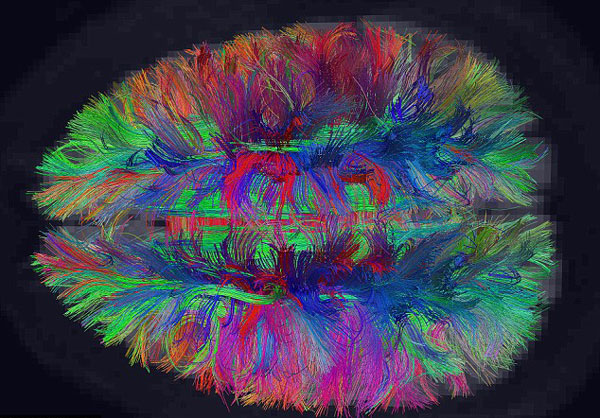- Auriel A. Willette, Barbara B. Bendlin, Erika J. Starks, Alex C. Birdsill, Sterling C. Johnson, Bradley T. Christian, Ozioma C. Okonkwo, Asenath La Rue, Bruce P. Hermann, Rebecca L. Koscik, Erin M. Jonaitis, Mark A. Sager, Sanjay Asthana. Association of Insulin Resistance With Cerebral Glucose Uptake in Late Middle–Aged Adults at Risk for Alzheimer Disease. JAMA Neurology, 2015; DOI:10.1001/jamaneurol.2015.0613
Association of Insulin Resistance With Cerebral Glucose Uptake in Late Middle–Aged Adults at Risk for Alzheimer Disease
Importance Converging evidence suggests that Alzheimer disease (AD) involves insulin signaling impairment. Patients with AD and individuals at risk for AD show reduced glucose metabolism, as indexed by fludeoxyglucose F 18–labeled positron emission tomography (FDG-PET).
Objectives To determine whether insulin resistance predicts AD-like global and regional glucose metabolism deficits in late middle–aged participants at risk for AD and to examine whether insulin resistance–predicted variation in regional glucose metabolism is associated with worse cognitive performance.
Design, Setting, and Participants This population-based, cross-sectional study included 150 cognitively normal, late middle–aged (mean [SD] age, 60.7 [5.8] years) adults from the Wisconsin Registry for Alzheimer’s Prevention (WRAP) study, a general community sample enriched for AD parental history. Participants underwent cognitive testing, fasting blood draw, and FDG-PET at baseline. We used the homeostatic model assessment of peripheral insulin resistance (HOMA-IR). Regression analysis tested the statistical effect of HOMA-IR on global glucose metabolism. We used a voxelwise analysis to determine whether HOMA-IR predicted regional glucose metabolism. Finally, predicted variation in regional glucose metabolism was regressed against cognitive factors. Covariates included age, sex, body mass index, apolipoprotein E ε4 genotype, AD parental history status, and a reference region used to normalize regional uptake.
Main Outcomes and Measures Regional glucose uptake determined using FDG-PET and neuropsychological factors.
Results Higher HOMA-IR was associated with lower global glucose metabolism (β = −0.29; P < .01) and lower regional glucose metabolism across large portions of the frontal, lateral parietal, lateral temporal, and medial temporal lobes (P < .05, familywise error corrected). The association was especially robust in the left medial temporal lobe (R2 = 0.178). Lower glucose metabolism in the left medial temporal lobe predicted by HOMA-IR was significantly related to worse performance on the immediate memory (β = 0.317; t148 = 4.08;P < .001) and delayed memory (β = 0.305; t148 = 3.895; P < .001) factor scores.
Conclusions and Relevance Our results show that insulin resistance, a prevalent and increasingly common condition in developed countries, is associated with significantly lower regional cerebral glucose metabolism, which in turn may predict worse memory performance. Midlife may be a critical period for initiating treatments to lower peripheral insulin resistance to maintain neural metabolism and cognitive function.

